Click on images to enlarge
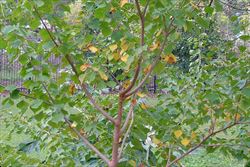
habit of young tree (Photo: Sheldon Navie)

habit in flower (Photo: Sheldon Navie)
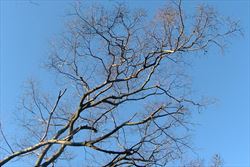
habit in winter (Photo: Sheldon Navie)
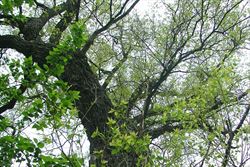
habit with new growth in spring (Photo: Sheldon Navie)

rough bark on main trunk of mature tree (Photo: Sheldon Navie)

close-up of bark on younger branch (Photo: Sheldon Navie)
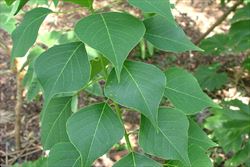
leaves (Photo: Sheldon Navie)
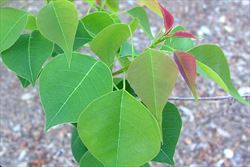
reddish-coloured young foliage (Photo: Sheldon Navie)
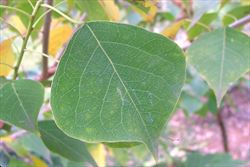
close-up of leaf (Photo: Sheldon Navie)
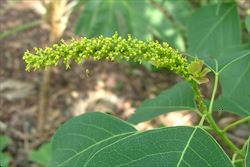
elongated flower cluster (Photo: Sheldon Navie)
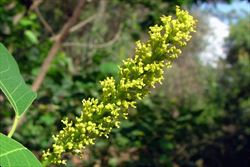
close-up of tiny yellow flowers (Photo: Sheldon Navie)
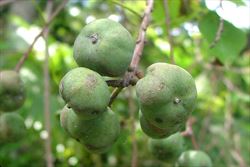
close-up of immature fruit (Photo: Sheldon Navie)

mature fruit (Photo: Sheldon Navie)
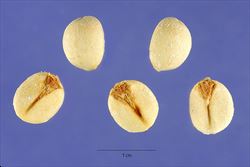
close-up of seeds (Photo: Steve Hurst at USDA PLANTS Database)
Scientific Name
Triadica sebifera (L.) Small
Synonyms
Croton sebifer L.Sapium sebiferum (L.) Roxb.
Family
Euphorbiaceae
Common Names
candleberry tree, chicken tree, Chinese tallow, Chinese tallow tree, Chinese tallow-tree, Chinese tallowtree, Chinese tallowood, Florida aspen, popcorn tree, popcorntree, tallowtree, vegetable tallow, white wax berry
Origin
Native to some parts of China and possibly also native to Japan and Taiwan.
Naturalised Distribution
Occasionally naturalised in south-eastern Queensland and in the coastal districts of northern New South Wales. Possibly also becoming naturalised in the Sydney region, in the coastal districts of central New South Wales.
Naturalised overseas in northern Africa, central and southern Europe, tropical Asia, the Indian Sub-continent (i.e. India and Pakistan), and southern USA (i.e. California, Texas, Arkansas, Louisiana, Mississippi, Alabama, Georgia, Florida, South Carolina and North Carolina).
Notes
Chinese tallow tree (Triadica sebifera) is regarded as an environmental weed in New South Wales and as a potential environmental weed in Queensland.

